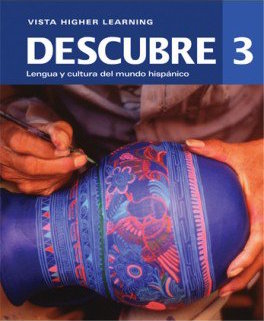
All Solutions
Page 258: Practica
The perfect preterite **is used when whe are talking about actions made in the past thata have consecuences in the present.**
|Español | English|
|–|–|
|estar | be |
|hacer |make |
|tener | have|
|descargar | download|
|romper |brake |
|romper | brake|
|perder |lost |
|volver |go back |
|preguntar | ask|
|ver | see|
We choose **”compramos”** because we are talking about us in the plural.
2. Tu nunca **”pensaste”** en ser matemático.
In this case, “pensaste” is in line with the situation
3. Los científicos ya **”han descubierto”** la cura.
As the verb “descubrir” is irregular, we are going to compose it and it look like **”han descubierto”**.
4. El profesor **escribió **formulas en la pizarra.
Now is easier use **”escribió”** for this sentence.
5. Mis padres siempre ***han creído*** en los ovnis.
Here we can use ***”han creído”*** as the correct option.
***REMEBER***: we use the verb **”hacer”** to be able to make compound verbs that make sense.
| Español|English |
|–|–|
| 1. No he ido a la luna, pero he visitado museos. |1. I have not been to the moon, but I have visited museums. |
| 2. Aun no he ganado la lotería, pero si he ganado concursos. | 2. I haven’t won the lottery yet, but I have won contests.|
| 3. Nunca he visto un extraterrestre, pero si he visto gente disfrazada de uno. | 3. I have never seen an alien, but I have seen people dressed up as one. |
|4. No he inventado algo, aunque he probado cosas nuevas. | 4. I have not invented something, although I have tried new things. |
|5. Jamás conocido al presidente del país, pero si he conocido al gobernador del estado. |5. I have never met the president of the country, but I have met the governor of the state. |
|6. Yo he estado despierto por más de dos días. |6. I have been awake for more than two days. |
|7. Yo jamás he hecho algo revolucionario, aunque si he visto uno.| 7. I have never done anything revolutionary, although I have seen one.|
|8. Yo siempre he soñado con ser astronauta. |8. I have always dreamed of being an astronaut. |

